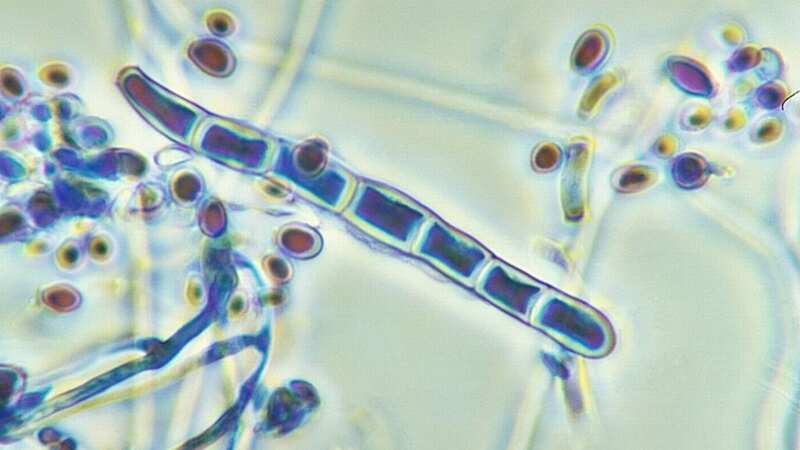Experts fear highly contagious fungal disease after warning world isn't prepared

Experts fear that contagious fungal infections will develop resistance to common antimicrobial drugs leading to common illnesses like thrush all the harder to treat.
This comes as medics warn "the world is not prepared" for the ever increasing danger fungal infections pose.
These type of infections come in many forms. Tinea, ringworm and thrush are some of the more familiar and common superficial fungal infections. There are also life-threatening invasive fungal bloodstream infections such as those caused by Candida albicans and Candida auris.
David Denning, Professor of Infectious Diseases in Global Health at the University of Manchester, previously revealed to the Mirror the drug resistant ringworm tinea, which can be transmitted easily in schools and homes, is spreading across countries.
For all the latest news, politics,sports, and showbiz from the USA, go to.
 Nursery apologises after child with Down's syndrome ‘treated less favourably’
Nursery apologises after child with Down's syndrome ‘treated less favourably’
 More pictures show the skin infection threatening to sweep across the US
More pictures show the skin infection threatening to sweep across the USHe said: “Skin fungal infections are transmitted from one person to another in schools, homes and with intimate contact. This new terbinafine-resistant fungus is a new species called Trichophyton indotineae and first identified in India.
"The huge Indian diaspora has already seen this fungus spread to other countries including Canada and Germany, and now the USA."
In May this year the Centers for Disease Control and Prevention (CDC) reported two cases, the first ever identified in the US. The highly contagious and drug-resistant fungus has been sweeping across South Asia causing all sorts of problems.
 Cases of drug-resistant ringworm, also known as tinea, have been diagnosed in the US
Cases of drug-resistant ringworm, also known as tinea, have been diagnosed in the USAccording to the health body, ringworm can affect skin on almost any part of the body as well as fingernails and toenails. Symptoms to look out for include itchy skin, ring-shaped rash, red, scaly, cracked skin or hair loss.
Symptoms typically appear between 4 and 14 days after the skin comes in contact with the fungi that cause ringworm.
Experts believe the rise in resistance funguses is down to an overuse of over-the-counter topical antifungal creams, inappropriate use of topical steroid creams, inappropriate prescription of antifungal drugs and inadequate adherence to prescribed courses of antifungal medication. This has been made all the worse by global travel and migration from regions where antimicrobial-resistant infections are more common.
 Fungal infection of the upper skin layer (Getty Images/Science Photo Library RF)
Fungal infection of the upper skin layer (Getty Images/Science Photo Library RF)According to the CDC: "Over the past decade, healthcare providers have reported increasing cases of severe and antimicrobial-resistant ringworm. Antimicrobial resistance happens when bacteria or fungi develop the ability to defeat the drugs designed to kill them. In this case, antimicrobial-resistant ringworm infections are not killed and continue to grow when treated with antifungal drugs, making them difficult to treat.
"The true number of antimicrobial-resistant ringworm cases is difficult to estimate because antifungal susceptibility testing, testing to determine if a case of ringworm can be treated by antifungal drugs, is not widely available and reporting of antimicrobial-resistant ringworm cases is not required in the United States."
Read more similar news:
Comments:
comments powered by Disqus

































